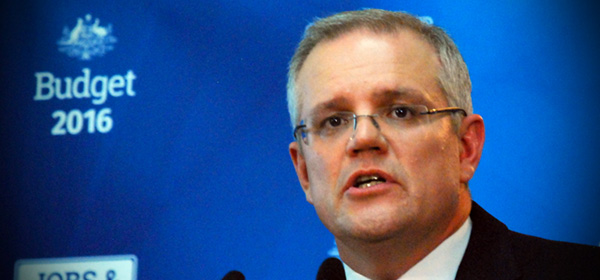There are two ways to review Scott Morrison’s first budget.
A top-level, ‘will it balance the books?’ perspective. And a retirement-focused appraisal – will average income retirees be better off? On both counts, it fails.
As Leigh Sale’s hard-hitting interview with Scott Morrison on the ABC’s 7.30 program revealed, the Turnbull Government’s budget deficit is a higher rate (26.2 per cent of GDP) than that of the Rudd or Gillard Governments (It is, in fact, higher than that which was described as a debt and deficit disaster by the Abbott/Hockey combo only two years ago). So the books are more heavily in the red, and forward projections are overly rosy (based on assumed iron ore prices which, at $55 per tonne, are robust to say the least). So as an attempt to reduce debt, with a vague hope we may return to surplus sometime after 2020, this budget has ducked all the difficult decisions to raise revenue, preferring instead to fiddle around the edges.
That is not to say it is all bad. The jobs for youth program has a great deal of merit, spending on infrastructure is a no-brainer and a tougher stance on multi-national companies’ tax avoidance is long overdue. But there are many big-ticket reforms that have simply been shelved. A change to Capital Gains Tax and Negative Gearing would do a lot for housing affordability for hundreds of thousands of ordinary Australians, but these changes have been firmly dumped in the too-hard basket.
Reviewing what this budget offers retirees is not difficult. It offers very little. Those already in retirement know that living on a fixed income is already tough and with yesterday’s cut by the RBA in the official interest rate, it’s likely to get a lot tougher. Those on a full Age Pension are most probably living below the poverty line. Little has been offered to them. An increase in the rate of the pension is long overdue – this was last increased by Kevin Rudd in 2009 and since then rents and prices have increased while the interest paid by banks has gone down.
The changes to superannuation are a start to making the system fairer for all. They don’t go far enough, but do mean that a signal has been sent that super is not an estate planning system. It’s interesting to note that the change to the superannuation transfer balance cap has not been grandfathered. As YourLifeChoices members have told us time and again, it is difficult to plan and enter retirement when the goal posts keep moving, so changes effective the day after the Budget hardly seem fair to any superannuant, rich or poor. The new contribution rules for those aged 65 to 74 do make a lot of sense – but are only recognition that we are all working harder and longer and retirement is becoming a far-off dream for many.
For those still working, tax cuts for workers earning between $80,000 and $87,000 are targeting middle income Australians and doing sweet nothing for the majority who simply do not earn this much. There is talk of tax cuts for lower income earners further down the track, but that’s cold comfort. And the re-classification of a ‘small business’ from up to $2 million turnover to $10 million is a very big bonus for the business sector.
It is also worth noting the $13 billion of ‘zombie’ measures which remain on the books from the Abbott Government’s first two budgets, as spelt out by Peter Martin yesterday. These include lifting of the Age Pension qualifying age to 70. In addition, there are some “mystery’ amounts ($1.6 billion and $1.9 billion) which will be revealed – you guessed it – in the lead up to the July election. Did anyone mention pork barrels?
In summary, as an attempt to balance the books, the hard decisions have been avoided and we will remain in the red until at least 2020. In terms of fairness and support for older Australians there is very little in this budget to celebrate.
What do you think? Has Kaye been unnecessarily harsh? Are you better off? Or worse?
Related articles:
Budget 2016/17: Super changes for high income earners
Budget 2016/17: Reducing the tax burden
Budget 2016/17: Targeted welfare safety net
Budget 2016/17: Crackdown on multinational tax avoidance
Budget 2016/17: How will the new tax changes affect the individual?
Budget 2016/17: Government to invest a record $50 billion on infrastructure
Budget 2016/17: Scott Morrison on a fairer super system
Budget 2016/17: Making super fairer and sustainable
Budget 2016/17: What’s in it for retirees?
Budget 2016/17: Is that all there is?
Budget 2016/17: PM confident of re-election

